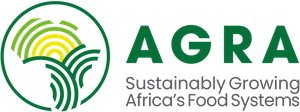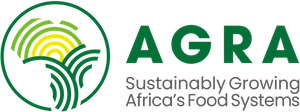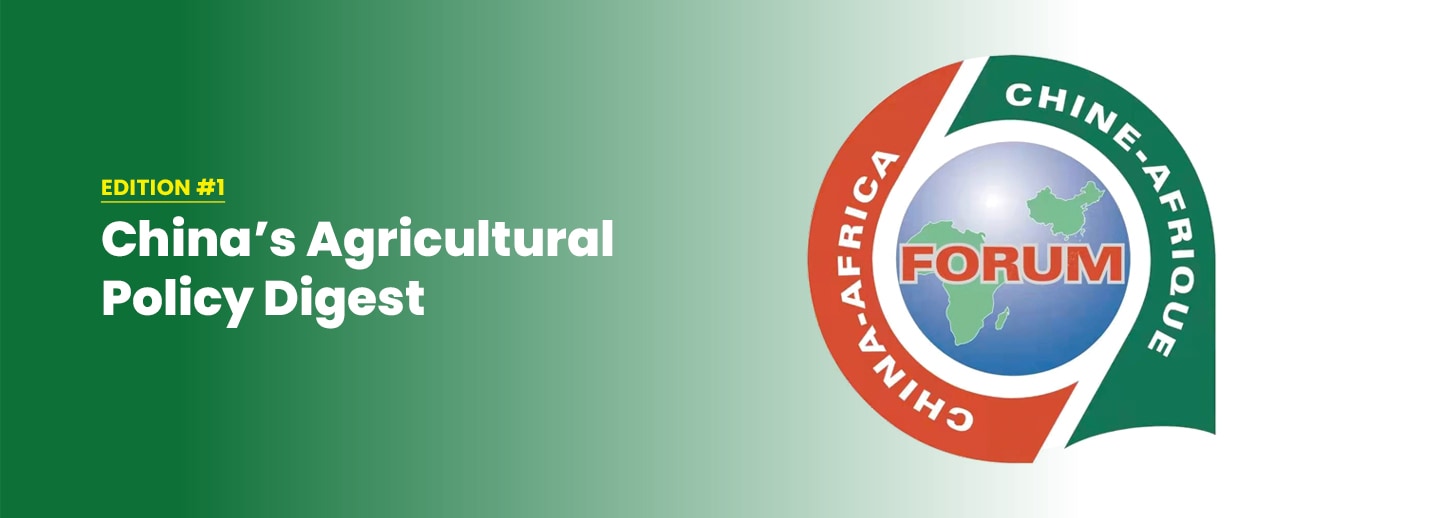
Issue No. 01, Apr 2022
On November 28th and 29th 2021, the Eighth Ministerial Conference of the Forum of China Africa Cooperation, FOCAC, took place in Dakar, Senegal. Ministers from 54 African countries that have established diplomatic relations with China, the African Union and other international organizations participated in the two-day forum. During the closing ceremony, Chinese President Xi Jinping announced that China would join African Union’s plan to vaccinate 60% of African population by 2023 by providing 1 billion doses of Chinese COVID19 vaccines. The 2021 conference also marked the 20th anniversary of the FOCAC. So what is the FOCAC? Does it have an agenda in agricultural development in Africa?
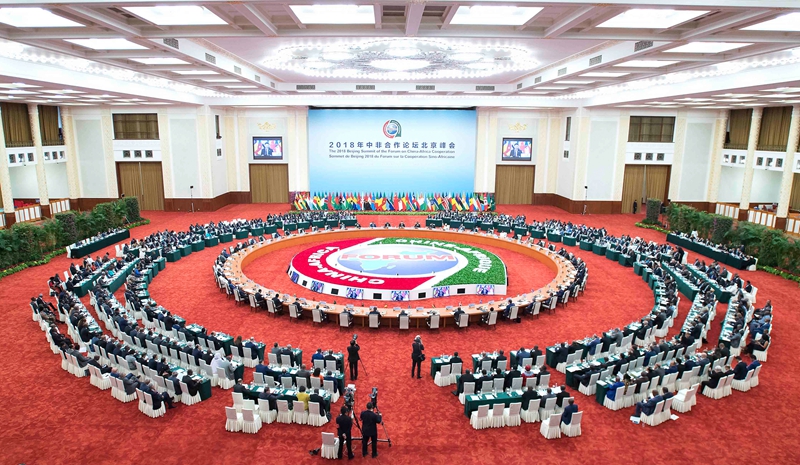
Section 1: FOCAC 101
On October 10th 2000, the first Ministerial Conference of Forum On China Africa Cooperation, FOCAC, was held in Beijing, by suggestions from several African foreign ministers. More than 80 ministers from China and 44 African countries, representatives of 17 international and regional organizations and hundreds Chinese and African business people attended the Conference. Currently, members of FOCAC include China, 54 African countries that have established diplomatic relations with China, and the African Union. Sub-regional organizations, such as ECOWAS and EAC, are regularly invited to join the forum as well.
FOCAC is not only focusing on diplomatic issues. In the past two decades, FOCAC gradually evolves into a comprehensive platform for Africa-China cooperation on multi-dimensional issues. So far there are 15 sub-forums under the FOCAC covering varied issues from agriculture to security cooperation. AGRA joined the agriculture sub-forum in 2019, the poverty reduction sub-forum and think tank sub-forum in 2021.
| Sub-forums of FOCAC | Starting Year of the Event | Starting Location of the Event | Recent Year of the Event |
| Conference of Chinese and African Entrepreneurs | 2003 | Addis Ababa | 2021 |
| FOCAC-Legal Forum | 2009 | Cairo | 2015 |
| China-Africa Industrial Forum | 2009 | Beijing | 2017 |
| China-Africa Poverty Reduction and Development Conference | 2010 | Addis Ababa | 2021 |
| China-Africa Agricultural Cooperation Forum | 2010 | Beijing | 2019 |
| China-Africa People‘s Forum | 2011 | Nairobi | 2021 |
| China-Africa Young Leaders Forum | 2011 | Windhoek | 2018 |
| China-Africa Think Tanks Forum | 2011 | Hangzhou | 2021 |
| China-Africa Science and Technology Cooperation Forum | 2011 | Beijing | 2011 |
| Forum on China-Africa Media Cooperation | 2012 | Beijing | 2020 |
| Forum on China-Africa Local Government Cooperation | 2012 | Beijing | 2021 |
| Forum on China’s and Africa’s Ministers of Culture | 2012 | Beijing | 2012 |
| China-Africa Ministerial Conference on Health Cooperation and Development | 2013 | Beijing | 2017 |
| Forum on Investing in Africa | 2015 | Addis Ababa | 2017 |
| China-Africa Defense and Security Forum | 2018 | Beijing | 2018 |
Chart 1 Sub-forums of FOCAC
FOCAC is not just a series of meetings. FOCAC takes place every 3 years in China and one African country in turn. Since the 1st FOCAC, follow-up action committees have been formed up on both sides, which are in charge of overseeing the implementation of the action plan from the last meeting and preparation for the next meeting. 33 ministries join the FOCAC follow-up committee on the China side and its secretary sits in the Ministry of Foreign Affairs.
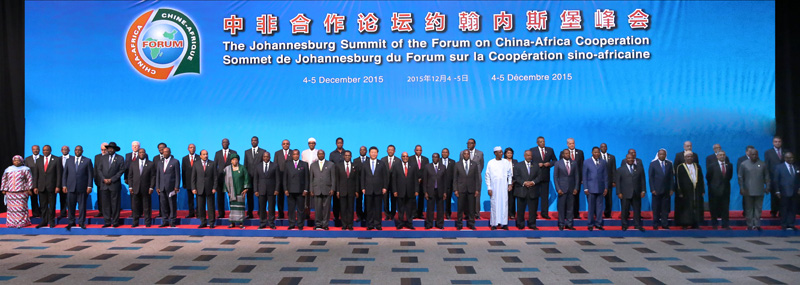
Big Numbers from FOCAC. FOCAC takes headlines of global media for its big financial commitment for Africa (for the next 3 years) that China announces on the forum: 60 billion on the 2018 and 40 billion on the 2021 summit. In the past 20 years since the 1st FOCAC, China has gradually become the biggest bilateral finance provider for African countries with 85 billion official finance disbursed. Away from finance, there are other numbers might be of more significance.
For instance, China is the biggest trading partner for Africa since 2009 with a trade volume around 200 billion in 2020 and 250 billion in 2021. China is the 4th biggest investor for Africa with accumulated FDI close to 50 billion with 25% annual growth since 2000. Besides, Chinese companies constructed over 20 ports, 80 mega power plants, 130 public health facilities, 170 schools and 6,000 km roads and railways respectively in Africa.
Section 2: FOCAC and Agriculture
The importance of agriculture cooperation between Africa and China has been acknowledged in the joint statement since the 1st FOCAC meeting in 2000. And from the 2nd FOCAC onwards, agriculture has been a key issue under the “economic development” sections of the FOCAC Ministerial Conference Action Plans with specific supporting policies and measures. Highlights of decisions regarding agricultural cooperation at FOCAC Conferences throughout the two decades are as followed:
FOCAC 1 (2000) – Beijing
- Agreed to explore avenues of trilateral cooperation between China, African countries, and international institutions such as the FAO.
FOCAC 2 (2003) – Addis Ababa
- For the 1st time: China pledged to support Chinese agriculture enterprises to do cooperative projects in Africa with concessional finances.
FOCAC 3 (2006) – Beijing
- For the 1st time: 10 Agricultural Technology Development Centers would be set up in Africa, which were then expanded into 24 over 20 countries until now.
- Send 100 senior experts on agricultural technologies to Africa.
- Beijing Action Plan 2007-2009: Encourage Chinese companies to invest in Africa’s agriculture sector, along with other emphasis on infrastructure, machinery and processing industry in agriculture.
FOCAC 4 (2009) – Sharm el sheik
- For the 1st time: “agriculture development and food security” are the priority for both sides.
- Send 50 agricultural technology teams to Africa
- Help train 2000 agricultural technicians for African countries
FOCAC 5 (2012) – Beijing
- For the 1st time: Encourage Chinese financial institutions to support cooperation between Chinese and African companies in agricultural planting, processing of agricultural products, animal husbandry, fishery and aquaculture.
FOCAC 6 (2015) – Johannesburg
- For the 1st time: modern agriculture is listed among the “10 Cooperation Projects”.
- Establish “10+10” cooperative mechanism among Africa-China agro-science research institutions
FOCAC 7 (2018) – Beijing
- Help Africa achieving general food security by 2030
- Implement 50 agricultural assistance programs
- Send 500 senior agriculture experts to Africa
- Assist in the development of new research thrusts in the crops, including molecular detection and identification of plant diseases, pest risk analysis, seed health testing/certification, and management of quarantine containment facilities for high-risk materials with biosecurity levels
- Set up a China-AU Agriculture Cooperation Commission
- Hold Africa-China Agriculture Cooperation Forum regularly
FOCAC 8(2021)– Dakar
- Extend agricultural cooperation to include the whole industry chain.
- Support Africa in developing modern agriculture by forming a complete system of breeding, planting, processing, storage, and logistics, and developing featured industries of livestock breeding and cash crop
- Enhance food security capabilities of African countries, and improve safety and value-added of African agricultural produce and food.
- Comprehensively advancing climate cooperation.
SECTION 3:FOCAC Commitments and CAADP
FOCAC Action Plans have pledged to support its implementation since FOCAC 5, and all four priority areas of CAADP are covered by FOCAC commitments.
- Priority 1: Extending the Area Under Sustainable Land Management and Reliable Water Control Systems.
- Priority 2: Improving Rural Infrastructure and Trade-Related Capacities for Market Access
- Priority 3: Increasing Food Supply, Reducing Hunger, and Improving Responses to Food Emergency Crises
- Priority 4: Improving Agriculture Research, Technology Dissemination, and Adoption
Conclusion:
Over two decades, the Forum on China Africa Cooperation has become the major platform for multi-dimensional cooperation between the two sides. Gradually, follow-up institutions under the FOCAC have also been established. On China side, although the significance of agriculture has been acknowledged since the 1st forum, but never provided with substantial support like other sectors (manufacturing and infrastructures for example) until the 2009 summit, when the topic started to associate with food security in the forum’s agenda. On Africa side, a lot of improvement has been made, but lack of better-coordinated stands and actions when negotiating with China still imbalance the relation, especially over issues such as agriculture.
Since China became the largest importer of food internationally in 2019 and the 2nd largest importer of African agriculture products in 2021, it is obviously crucial for African stakeholders, such as AGRA, to carefully monitor and read China’s policy in the agriculture sector. The China Agriculture Policy Digest plans to serve this purpose.
Source:
FOCAC official website http://focac.org.cn ;
Gyude Moore and Anna C Baisch, Agriculture Cooperation under FOCAC, Development Reimaged, Feb 2022;
Haifang Liu, The Transformative Development and African South-South Cooperation in Agriculture Sector, Social Science Academic Press China, Dec 2018;
Cheng Cheng, Building A Bridge to Shared Development: Prospective Assessment of the FOACA, RDCY Research Paper No. 42, Renmin University of China Sep 2018.
